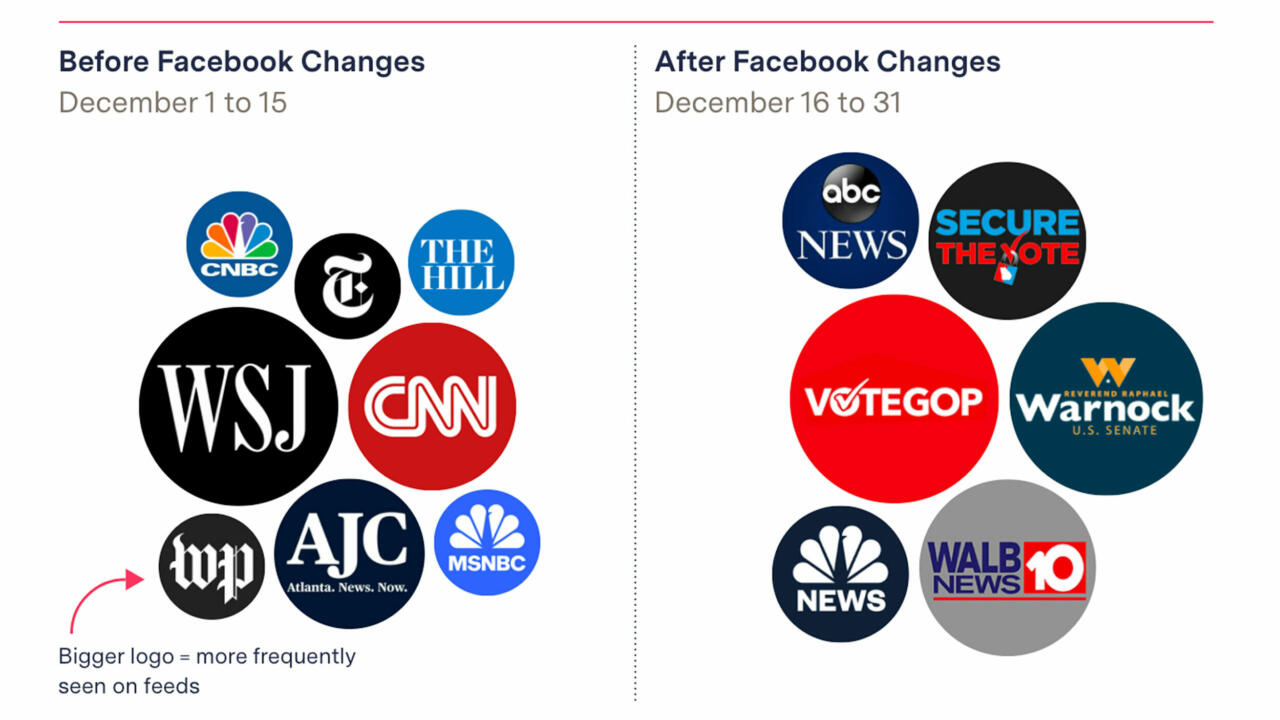Hello, friends,
Happy New Year! This week we published our first results from the Citizen Browser Project. We’ve been working on Citizen Browser for nearly a year and, phew, it comes just in the nick of time.
This week’s deadly riot in the nation’s Capitol, incited by the President through incessant lying on social media, reinforced how important it is to act as a watchdog over social media platforms.
Luckily we now have an app for that. Citizen Browser is a data-driven initiative built to crack social media algorithms and examine the hidden decisions companies make regarding what content to amplify to their users. We recruited a panel of more than 1,000 Facebook users nationwide and paid them to allow us to monitor their Facebook feeds, starting in late November, using a custom app that we built.
Of course, we protect the privacy of our panelists. All of the data we receive from users’ feeds is scrubbed using software that we built to remove potential identifiers such as users’ names and their friends’ names. The raw data we collect from our panelists is never seen by a person and is automatically deleted after one month. (For all the details, check out our methodology.)
If it sounds like building Citizen Browser was a monumental amount of work, you’re right—it was. It took 10 months and a team of eight engineers to complete—and that’s not counting another dozen or so people who were involved in everything from designing the app to be simple, to providing technical support to the panelists, to developing a privacy-preserving system consistent with The Markup’s mission.
But we think it was worth the work. Our first story, published this week, by data reporter Corin Faife, found that after Facebook flipped the switch to allow political ads ahead of the Senate runoff elections in Georgia, partisan content elbowed out reputable news outlets in our Georgia panelists’ news feeds.
For the first half of December, election-related content that appeared on our Georgia panelists’ feeds primarily came from news outlets such as The Wall Street Journal, CNN, and the Atlanta Journal-Constitution.
But after Dec. 16—the day Facebook turned political ads back on in the state—one third of the top domains containing election content in our panelists’ news feeds were from partisan campaign sites buying ads. Those included WrongForGeorgia.com, an attack site targeting the Democratic candidates; and DeserveBetter.org, an attack site targeting the incumbent Republican senators.

Of course, our panel in Georgia was small. We had 58 panelists, and more than one-third of them were not exposed to any election-related content on their feeds. (We defined election-related content as anything containing mentions of Trump or Biden, the names of the four major-party senate candidates, or the terms “senate,” vote,” “election,” or “ballot.”)
As in our national panel, the percentage of Latinos and Trump voters is lower than their percentage in the state. And our panel, both nationally and in Georgia, is generally older and more educated than the U.S. population as a whole. These are challenges that other pollsters have faced.
“In an election where millions of people have already voted, even this tiny sample size has reinforced a basic truth about politics,” Facebook spokesperson Devon Kearns said. “[T]he closer you get to Election Day, the more political content everyone is likely to see….
Our panel provides a rare independent window into activity on Facebook. Facebook does not allow journalists and researchers to collect data from its platform without its permission.
And because the tech industry is largely unregulated, there is no equivalent of the Environmental Protection Agency or the Federal Aviation Authority to collect independent records about tech companies. Data that the companies release is almost entirely at their own discretion, and unverifiable.
That’s why tools like Citizen Browser are crucial. We will be writing more articles based on our data in the coming weeks. Please sign up for the Citizen Browser newsletter if you don’t want to miss any of them.
On Thursday at 1 p.m. EST, we’ll be convening a panel with researchers Laura Edelson, David Lazer, and Rebecca Weiss, moderated by Ethan Zuckerman, to discuss different approaches to the challenge of collecting data from social media platforms. Please join us.
Thanks, as always, for reading.
Best,
Julia Angwin
Editor-in-Chief
The Markup